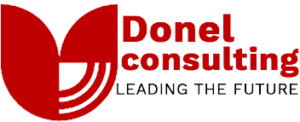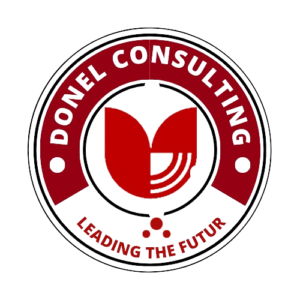We equip organizations with the necessary skills, competencies, and resources to address development challenges.
Integrated Knowledge and Capacity Building
Knowledge Management
Our knowledge management services involve the creation, sharing, and utilization of knowledge to address specific development challenges. We use a range of tools, including information gathering and sharing networks, training programs, and communities of practice, to advance integrated knowledge and capacity building.
Capacity Development
Our capacity development services focus on equipping individuals and organizations with the necessary skills, competencies, and resources to address development challenges. We take a continuous and iterative approach, engaging stakeholders, identifying strengths, and fostering partnerships to build capacity.
Contact us today to learn more about how we can support your fundraising and grant proposal development needs.
Our capacity building services are designed to support sustainable development initiatives.
Get insights from our previous missions
The future is inherently uncertain.
Scenario planning offers a proactive approach to navigate this uncertainty.
It helps anticipate future trends and disruptions.
Reforms designed to make things better can be met with public resistance.
Public resistance is a significant hurdle that can derail even well-designed reforms. It’s crucial to analyze the reasons behind the resistance to develop effective implementation strategies.
Well designed societal amelioration initiatives, despite their noble intentions and potential for transformative impact, invariably encounter formidable opposition from a populace deeply entrenched in established norms, necessitating a delicate balance between progressive change and public sentiment to ensure successful implementation and lasting positive outcomes.
Public resistance is a significant hurdle that can derail even well-designed reforms. It’s crucial to analyze the reasons behind the resistance to develop effective implementation strategies.
Weak statistical capacity is a critical roadblock for African nations.
Investing in strong statistical capacity isn’t just about data; it’s about empowering African nations to make data-driven decisions that improve the lives of their citizens.
Public Scrutiny of PPPs through Contract Mechanisms
Given the substantial public resources involved, public scrutiny is crucial.
Improved project design and value for money. Direct public participation at various stages of the PPP process, from program development to project implementation and monitoring, allows public concerns and feedback to be incorporated, leading to better-designed projects that deliver greater value
Involving Citizens and Civil Society Organizations in Regional Cooperation Processes: An Integrated Knowledge Perspective
When people from across a region feel invested in cooperation efforts, it fosters a stronger sense of regional identity and a more collaborative approach to addressing shared challenges.
Bureaucratic hurdles are a major obstacle to progress in many African countries.
These hurdles hinder economic growth, social development, and effective governance. Reform is crucial to overcome these challenges.
Several factors contribute to the prevalence of bureaucratic hurdles in Africa
Technology has the potential to remove leapfrog traditional bureaucratic structures and enhance service delivery.
Limited Healthcare Access Traps Sub-Saharan Africa in a Cycle of Poverty and Ill Health
Concerted efforts to break the poverty-ill health cycle through targeted health sector investments and universal healthcare coverage initiatives hold immense potential for unlocking sub-Saharan Africa’s human capital and economic growth prospects
Raising Public Awareness about Domestic Resource Mobilization
Citizens who understand how tax revenue is used are more likely to comply with tax regulations.
Out-of-pocket health expenditures push many Africans into poverty.
Perpetuating a vicious cycle of ill health and economic hardship across sub-Saharan Africa. Catastrophic healthcare costs force households to sacrifice other basic needs, deplete savings, sell assets, or incur debts, exacerbating existing poverty and pushing vulnerable populations deeper into destitution
Understanding the complexities of decentralized service delivery.
Theoretical arguments posit that decentralization can enhance responsiveness, efficiency, and accountability in public service delivery by bringing decision-making closer to local populations.
African universities and research institutions have a critical role to play in tackling the continent’s development challenges.
Africa’s rapid urbanization presents both challenges and opportunities.
Focus on the role of sustainable urban development in driving growth.
Urbanization enhances productivity through positive externalities and economies of scale, with urban areas in Africa producing more than 5.5 times as much as rural regions
The contrast between a divided Africa and a prosperous one, with capacity development as the turning point
While Africa has made strides in economic growth and poverty reduction, persistent capacity deficits in policy implementation, governance, and service delivery continue to hamper sustainable and inclusive development.
Financial Regulation: Regulation should strike a balance between encouraging innovation and protecting farmers from predatory lending practices.
The financial landscape for farmers is complex. They require access to credit for everything from seeds and fertilizer to equipment and land purchases. However, this need for capital can leave them vulnerable to unfair lending practices. Striking a balance is crucial. Regulations should safeguard farmers from predatory lenders, while also fostering innovation in financial products and services that meet their unique needs.
Finding the sweet spot between protection and progress is a constant challenge. Overly restrictive regulations can stifle the development of new financial tools that could benefit farmers. Conversely, lax regulations can leave them exposed to high-interest rates, hidden fees, and unfair loan terms.
The ideal regulatory framework should empower farmers. It should provide clear information about loan terms, ensure fair interest rates, and offer recourse mechanisms …
Despite progress in expanding access to education, the quality of education remains a concern in many African countries.
A robust, ongoing professional development program for teachers is at the core of this solution.
Managing Public Debt: The ethical responsibility for future citizens
Excessive debt burdens future generations with higher taxes or reduced public services to repay current obligations.
Regional Economic Communities (RECs) must have clear decision-making processes, accountability mechanisms, and dispute resolution procedures to coordinate policies and programs across member states. Robust governance is essential for RECs to address challenges like overlapping memberships, narrow markets, poor infrastructure, and weak implementation capacity. RECs also need the authority and resources from member states to carry out their mandates.
A Framework for Education, Life Skills, and Community Engagement for West African Girls
Fragmented markets hinder economies of scale, making it difficult for African businesses to compete with larger international companies.
We need policy reforms that can support the competitiveness of African SMEs in fragmented markets.
Empowering Local, Reaching Global: Equipping SMEs with Trade Skills to Unlock Regional Export Opportunities
We work with industry associations, and development organizations on export strategy development, market research, and building linkages with regional buyers.
A look at African Unsustainable Land Management Practices
The important role of primary care in delivering accessible and comprehensive healthcare.
Primary care can be integrated and function effectively within the broader healthcare delivery landscape.
Developing a Pipeline of Skilled Analysts, Statisticians, and Researchers for Stronger African Governance.
Cost-effective interventions such as teacher training, structured pedagogy, and participation in learning assessments will enhance the quality of education
It’s about Financial Sustainability of Regional Bodies in Africa
The political economy dynamics at play within regional blocs.
Investing in Skills and Systems for Targeted and Sustainable Social Protection Programs in Africa
The role of social protection programs in mitigating poverty, promoting social inclusion, and fostering economic development.
The Hidden Costs of Widening Income Gaps for Economic Growth
An understanding connexion of the seemingly paradoxical relationship between income inequality and economic growth.
The positive impact that a robust trade finance system can have on the continent’s economic development.
We work with African governments, private sector actors, and financial institutions on regulatory reforms to enhance the efficiency and accessibility of trade finance, fostering a more vibrant trade ecosystem across the continent.
The Transformative Power of Climate-Smart Agriculture
The need to make sure CSA solutions are tailored to the specific needs and contexts of smallholder farmers.

